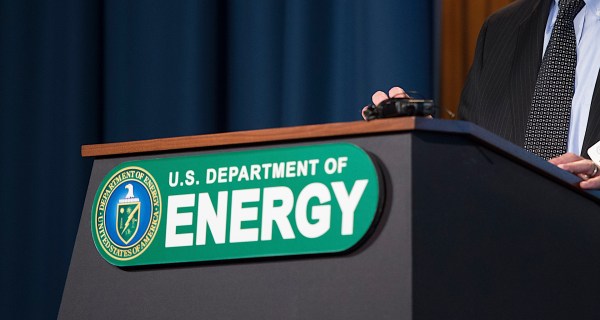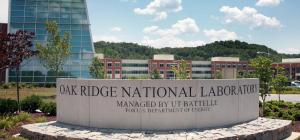Hybrid cloud is hard — but worth it in the long run, feds say
LAS VEGAS — Some of the biggest proponents of cloud computing in the federal government know their data centers are not going to be shut down overnight.
So, agencies must figure out how to take advantage of the agility of the cloud while they’re still dependent on legacy data storage systems. That’s easier said than done, said two executives from early cloud adopters within the federal government.
“Hybrid cloud is really difficult,” Chris Webber, the chief cloud architect for the Energy Department’s National Renewable Energy Lab, told FedScoop at the Amazon Web Services re:Invent conference this week. “The controls that have to be put in place to manage the transport of data, it’s really tough to pull that off.”
Webber, whose team has been standing up databases on AWS since 2008, said his first venture with hybrid cloud came when the department asked his laboratory to create a geothermal data repository that would house data needed for cross-department use.
Webber said the protection controls that go into the system continue to be a “moving target” due to changing government policies — pointing to the forthcoming A-130, which would give agency privacy offices separate and independent authority over the Federal Risk and Authorization Management Program, as an example.
“We have to be cognizant of the fact that we need an environment that can be agile enough to respond to” those changes, he said. “What we learned about building this hybrid cloud connecting public AWS to our own data center, we couldn’t move fast enough to respond. It wasn’t for weakness on the part of our lab, it’s just that internal data centers aren’t designed for that.”
Even as Webber faced challenges, his team took what they learned from standing up the geothermal database, and combined it with FedRAMP and Federal Information Security Management Act security controls to make the lab comfortable with hybrid cloud deployments.
“When I talk to other national labs, they find it’s amazing that we’ve managed to house data securely in the cloud,” he said.
The pain points have also shown Webber that training needs to be reconfigured if other agencies are going to follow NREL’s lead.
“I think we are looking for people who are more rounded now in terms of their skill set and they are not necessarily so focused,” he said. “We don’t need someone that’s just a VMware expert. We need someone who knows storage.”
Tom Soderstrom, the chief technology officer for NASA’s Jet Propulsion Lab, echoed Webber’s sentiments on Thursday. Hybrid environments present many challenges, but it really comes down to skill set, he told FedScoop. “It’s the skill set of the technical people, but also the managers and everyone else.”
Soderstrom said the Jet Propulsion Lab has experimented with public cloud and on-premise data centers, but figured out over the past few years that “hybrid cloud is the end goal.”
“We create hundreds of terabytes of data, you can’t put that into a data center,” he said.
The goal of hybrid cloud is something the private sector is also wrestling with. During a roundtable with reporters, two executives from private companies expressed many of the same struggles migrating to hybrid.
“For any established company, a hybrid approach is essential,” said John Trujillo, assistant vice president of technology for Pacific Life Insurance. “You can’t just go from ‘on prem’ to cloud overnight.”
Jeroen Tas, CEO of Philips Healthcare Informatics Solutions and Services, said his company is wrestling with moving 28,000 servers and more than 1,000 data centers into a secure hybrid cloud model.
“Any big enterprise has exactly the same issues as the government,” Soderstrom said. “Part of it is legacy, part of it is red tape, part of it is scale, part of it is compliance.”
Whether public or private sector, organizations can benefit from the versatility that hybrid offers, Webber said. He hopes others in government follow his lead.
“There’s so much data that we house now internally, and we build these massively scalable data storage systems to house it all. Why do we do that?” he said. “Why are we spending all of those resources to maintain a system that is going to be obsolete in three years anyway, when we could copy it over the cloud and let somebody else deal with that headache? I don’t think we need to make it so complicated.”






